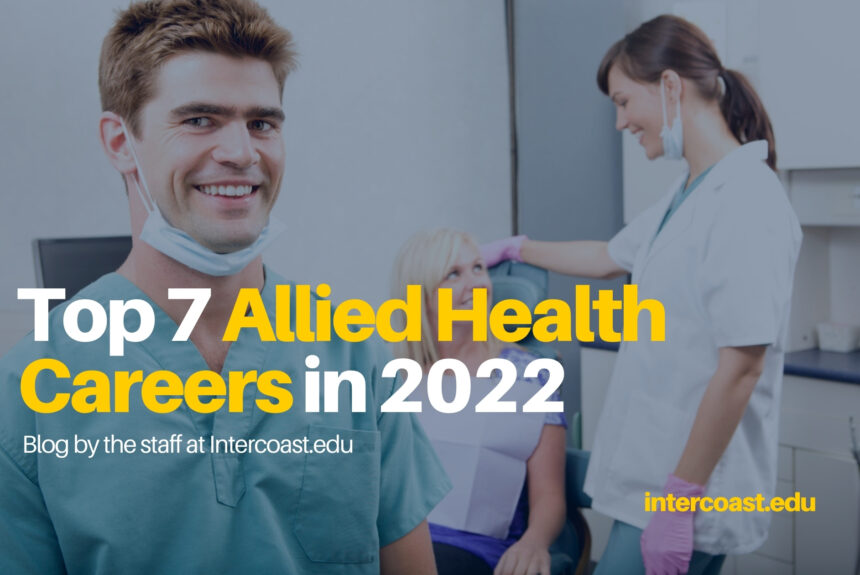Estimated reading time: 4 minutes
Table of contents
The healthcare industry is valued at $8.45 trillion, and it will continue to increase as time continues. With that being said, more people must continue to seek allied health careers to meet the industry’s demand.
Are you considering one of the careers in allied health, but you’re not sure what type of careers are out there? Read on now to find out about some of the most compelling allied health professionals and their jobs.
What is Allied Health?
Allied health isn’t one form of a profession; it encompasses several professions. Allied health focuses on assisting doctors, nurse practitioners, chiropractors, and other licensed medical professionals who provide treatment to patients based on science and evidence-based research.
This research and science are then used to evaluate patients accordingly and do things that include:
● Making an accurate diagnosis
● Preventing disease
● Administering treatment
To work in the allied health field, you need several traits, such as working as a part of a team. No matter the setting you work in, it takes the work of a team to coordinate and deliver quality care for all patients.
Another optimal trait needed is to be a good communicator, whether you’re speaking with patients, their families, or other team members. It’s essential that you’re able to communicate in written and verbal form.
With a better understanding of what allied health is, here are some professions you might want to seek a certificate in.
1. Ultrasound Technician
An ultrasound technician’s job is when you use an imaging machine to capture images of the patient’s internal organs. Another critical aspect of this role is to take note of the ultrasound equipment and report when the equipment requires maintenance.
Once you’ve captured the images of a patient’s internal organs, you’ll need to create a report detailing these findings. To become certified as an ultrasound technician, you’ll need to take several courses, including:
● Medical terminology
● Pharmacology
After you’ve done what you’ve needed to do, you can move forward with obtaining your certification.
2. Medical Assistant
A medical assistant isn’t the same as a physician’s assistant. The critical difference is a medical assistant performs more administrative or clinical tasks in various healthcare environments.
While there isn’t a specific degree that should be obtained to become a medical assistant, most jobs will require you have a high school diploma or the equivalent of one. You will also need vocational training before applying for the job.
Having these things increases your chances of getting the job, but it doesn’t mean that you will get it. Each place you apply to will have different requirements that applications must meet.
3. Pharmacy Technician
Pharmacy technicians work in a pharmacy alongside pharmacists to provide customers with the medication they need to for their health as prescribed by their primary care providers. It’s crucial to secure a job in this profession; you’ll need to pass your pharmacy exam after receiving the proper education.
As of Oct 2021, between now and 2028, the job outlook for pharmacy technicians is expected to grow by 7%.
4. Phlebotomist
Phlebotomy is a job for those that aren’t squeamish when they see blood. Your main job in this position is to draw blood from patients and ensure it’s adequately prepared before being sent for testing.
Depending on where you work, you might also have to manage blood donations and transfusions for patients. Before you enter into a phlebotomy program, you need to determine what the requirements are for you to obtain your certification.
5. Dental Assistant
Dental hygiene is an essential part of a person’s health, and to ensure people stay on top of this; it takes the combined work of a dentist and their assistants. Your only job isn’t to provide care to patients; you will also:
● Take x-rays of patient’s teeth and jaws
● Schedule appointments for patients
● Assist the dentist when needed during appointments
You will need to work through a program and pass a dental assistant exam before receiving your certificate of completion. You’ll participate in courses like radiography and radiation and preventative dentistry.
6. Medical Records Keeping
Medical record-keeping is an essential part of the healthcare industry. Without the proper records, it can be challenging for doctors to keep up with past and present treatments or medications used by a patient.
Your responsibility is to take the records and documents provided by healthcare organizations and keep accurate records. There are several reasons to work in this field, with the main one being that you don’t have to have direct contact with patients.
However, you’ll need training in coding because there are several health codes you must know if you’re going to work in the billing department of a healthcare facility.
Allied Health Careers
Several allied health careers might be the right job for you. Before you can obtain your certificate of complication, you’ve got to do what it takes to become certified.
Have you finished the certification requirements and are ready to receive your completion certificate? Or are you still searching for a program to enter?
Contact InterCoast today and let us help you apply to the right program!

